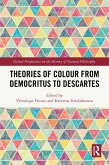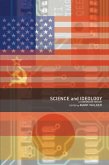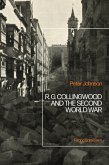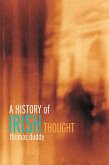With a recent surge of interest in the field, a volume taking stock of important theoretical shifts in the philosophy of history is greatly needed. A Philosophy of History fills this gap by weaving together a range of perspectives on the field which finds itself at a crossroads, and asks where it is headed in the 21st century.
The book takes a concerted effort to go beyond the customary three-fold distinction between the speculative, analytic and narrativist approaches in philosophy of history. It considers, what comes after the enduring 'narrativist turn'. Chapters incorporate cutting-edge discussions on the relevance of contemporary political phenomena such as populism, the relation between science and history, pragmatism and the paradigmatic challenge of the Anthropocene. It also re-evaluates the continued relevance of major historical thinkers like Leibniz and R.G. Collingwood, and the endlessly fresh insights they can offer to key debates in the field today.
Philosophy of History is a much-needed reappraisal of the philosophy and theory of history; offering an up-to-date overview of major developments in the field, and addressing the pressing questions of where to go next in a 'post-analytical', 'post-narrativist' world.
The book takes a concerted effort to go beyond the customary three-fold distinction between the speculative, analytic and narrativist approaches in philosophy of history. It considers, what comes after the enduring 'narrativist turn'. Chapters incorporate cutting-edge discussions on the relevance of contemporary political phenomena such as populism, the relation between science and history, pragmatism and the paradigmatic challenge of the Anthropocene. It also re-evaluates the continued relevance of major historical thinkers like Leibniz and R.G. Collingwood, and the endlessly fresh insights they can offer to key debates in the field today.
Philosophy of History is a much-needed reappraisal of the philosophy and theory of history; offering an up-to-date overview of major developments in the field, and addressing the pressing questions of where to go next in a 'post-analytical', 'post-narrativist' world.









